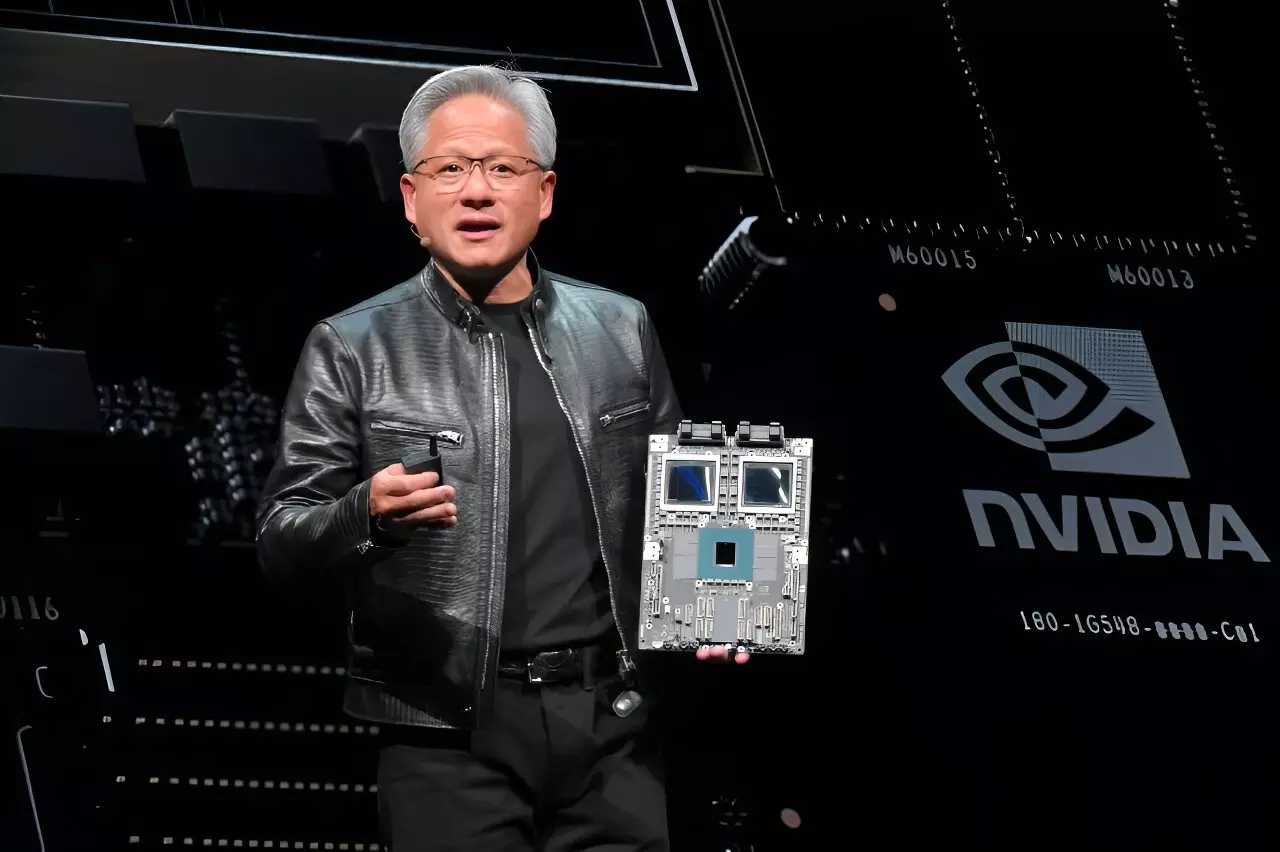

Nvidia recently made waves at the prestigious tech expo, Computex, by unveiling new products and showcasing their plans to accelerate the advancement of artificial intelligence. CEO Jensen Huang, a Taiwan-born celebrity in the tech world, captured the audience’s attention with his bold statement that “the next industrial revolution has begun”. Alongside other industry heavyweights like AMD, Intel, and Qualcomm, Nvidia is leading the charge in transforming the tech industry into one dominated by AI.
During his speech at National Taiwan University’s sports center, Huang highlighted Nvidia’s role in partnering with companies and countries to transition traditional data centers into accelerated computing centers. These new “AI factories” are aimed at producing artificial intelligence as the new commodity of the future. Nvidia also announced the general availability of Nvidia ACE generative AI, which can create lifelike human avatars for various industries such as customer support.
Not content with their current offerings, Huang revealed plans for an “ultra” version of the Blackwell platform in 2025, as well as teasing a next-generation GPU architecture codenamed Rubin. Nvidia’s accelerated roadmap promises new GPU products each year, signaling a commitment to staying at the forefront of innovation in the AI hardware space.
Throughout his keynote, Huang emphasized Nvidia’s strong partnership with Taiwan and its crucial role in the semiconductor industry. Taiwan is not only home to advanced semiconductor manufacturers but also plays a pivotal role in the production of essential components for cutting-edge technologies like AI. Huang expressed gratitude towards Taiwan, acknowledging it as the birthplace of Nvidia’s partnerships and the starting point for their global impact in the AI infrastructure.
Huang painted a picture of a future where generative AI will power nearly every interaction with the internet or computers, emphasizing the ubiquitous nature of AI in our daily lives. As tech giants like AMD, Intel, and Qualcomm gear up to showcase their AI capabilities at Computex, it is clear that AI is driving the next wave of technological innovation.
Despite Taiwan’s vital role in the global semiconductor supply chain, concerns loom over the island’s sovereignty in the face of China’s territorial claims. The geopolitical tensions between Beijing and Taipei have escalated, with the Chinese military conducting exercises near Taiwan, raising questions about the stability of Taiwan’s semiconductor industry and its impact on the global economy.
Nvidia’s bold vision for the future of artificial intelligence exemplifies the rapid evolution of the tech industry towards AI-driven solutions. As Taiwan continues to be a key player in semiconductor manufacturing and AI hardware production, the challenges posed by geopolitical tensions highlight the need for a strategic approach to safeguarding the innovation and progress in the tech sector. The rise of artificial intelligence is not just a technological advancement but a transformative force shaping the future of industries worldwide.
Radionuclides, often relegated to discussions surrounding nuclear energy and radioactive waste, have far-ranging implications for…
Landslides have long been a concern in areas like California, where the unique geography and…
In the vastness of our galaxy, among countless stars, lies a fascinating phenomenon known as…
This week marks a monumental milestone in astronomy as the Hubble Space Telescope celebrates its…
The enigma of dark matter has captivated the scientific community for decades. Although it constitutes…
As individuals age, the likelihood of encountering age-related macular degeneration (AMD) significantly increases, posing a…
This website uses cookies.